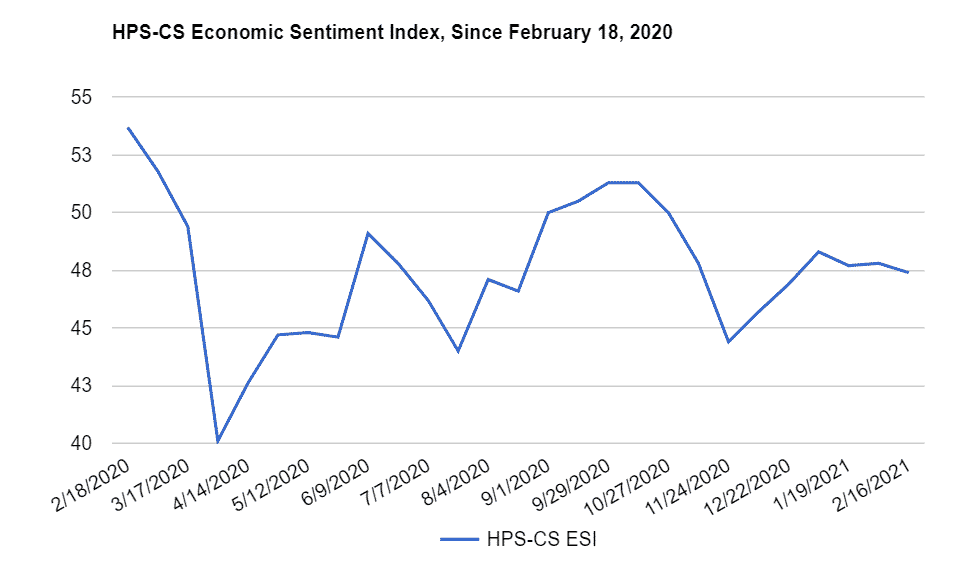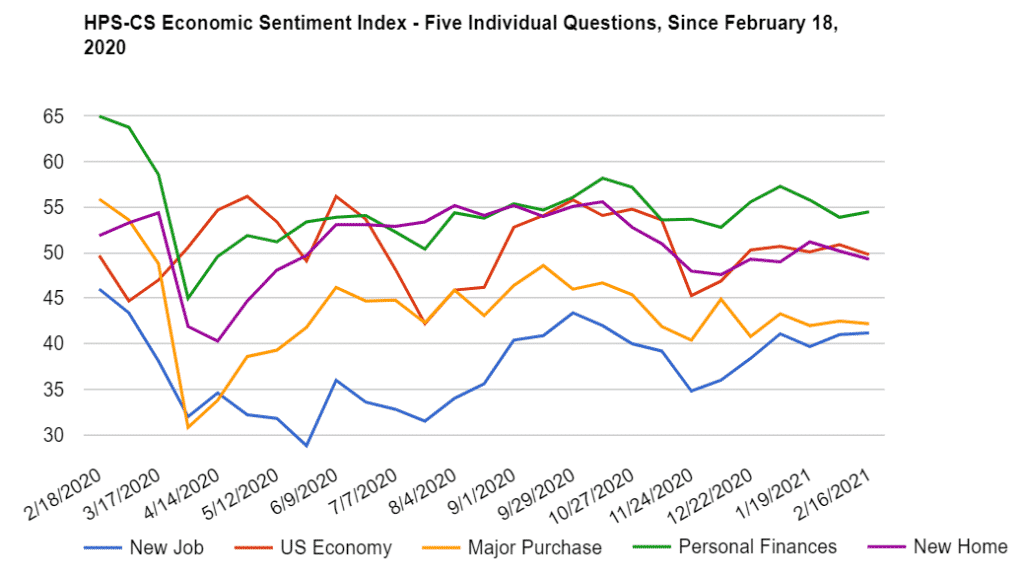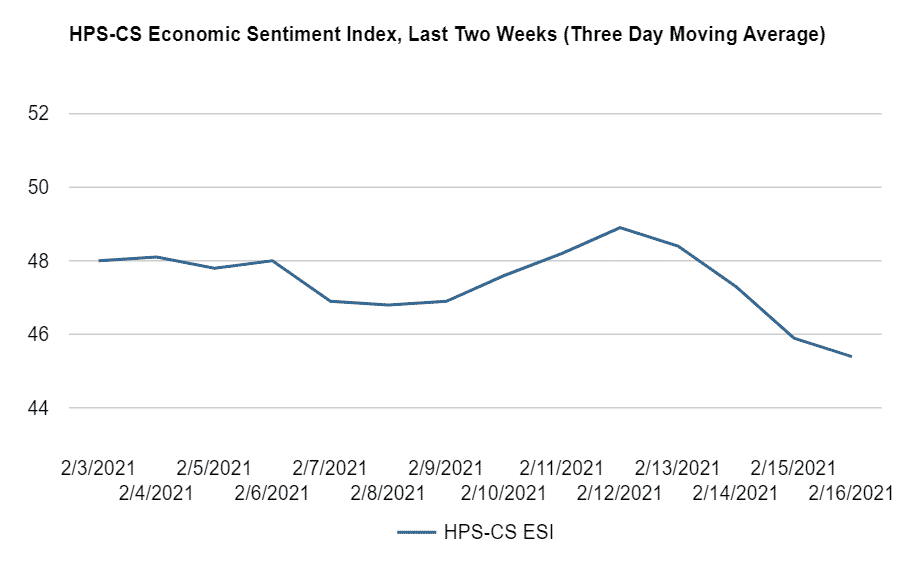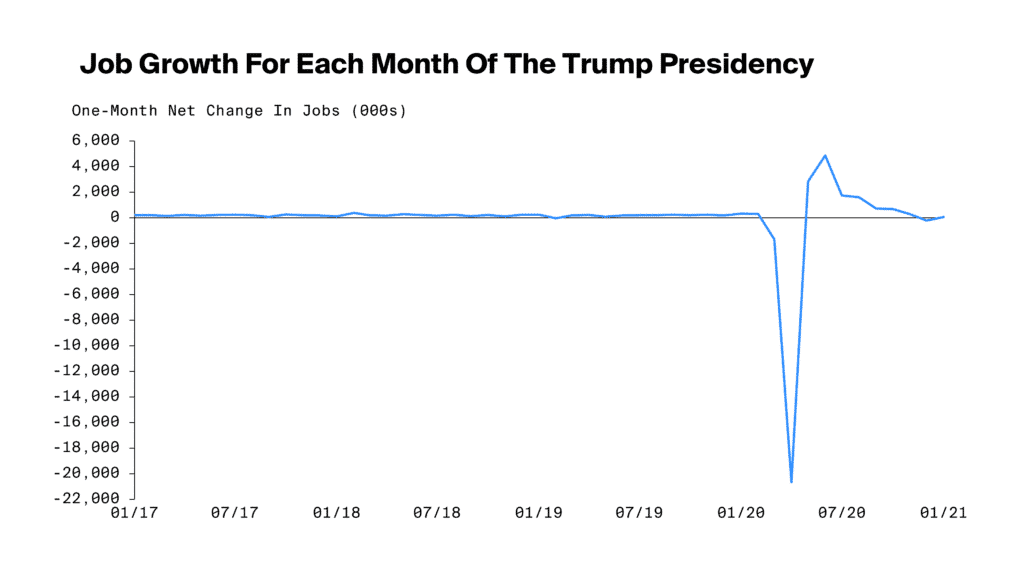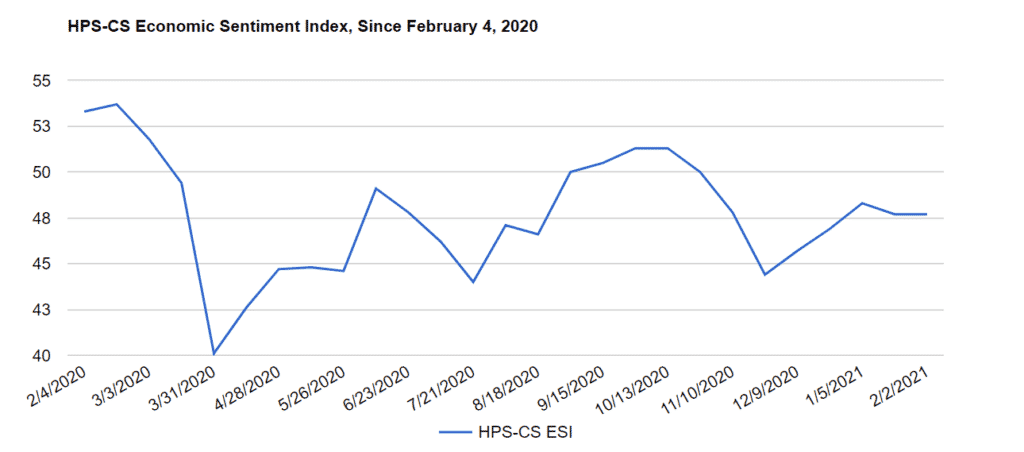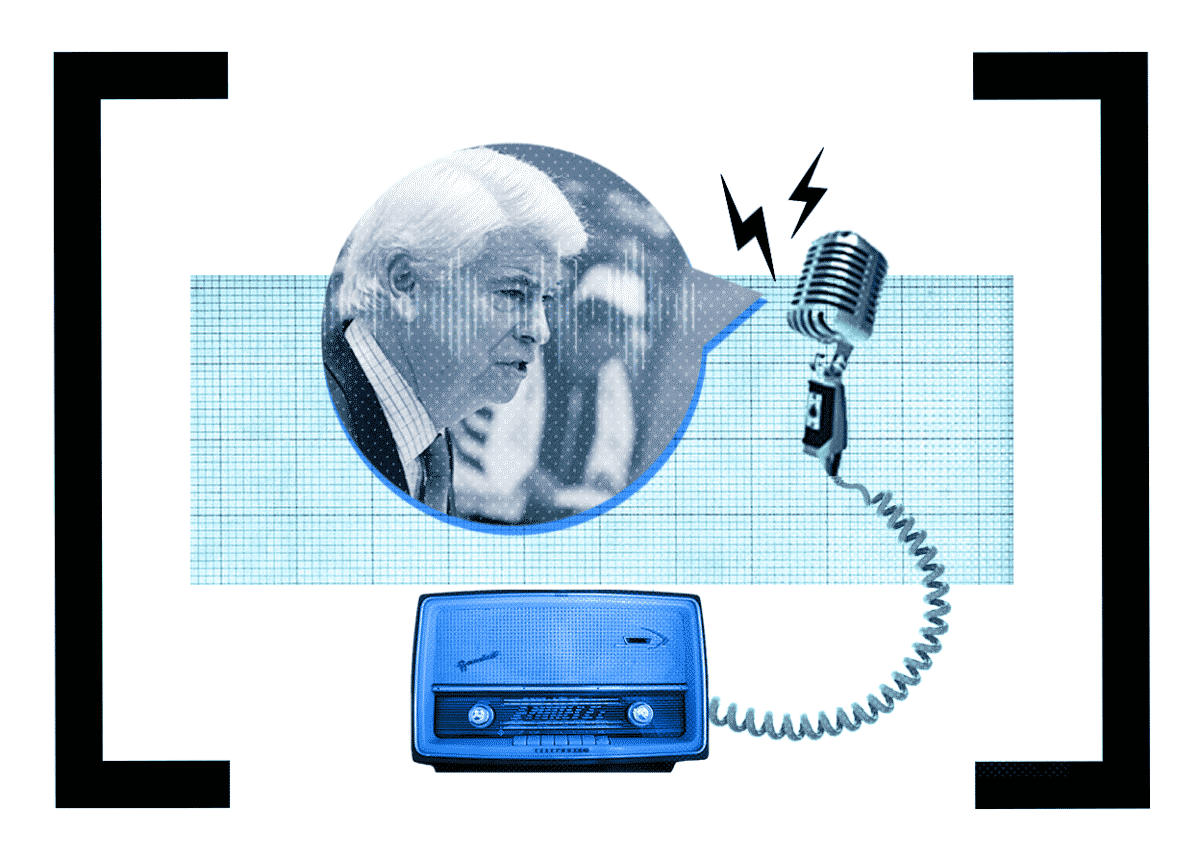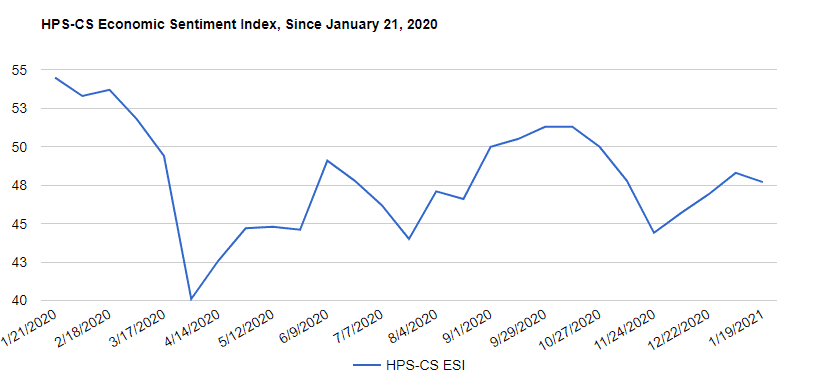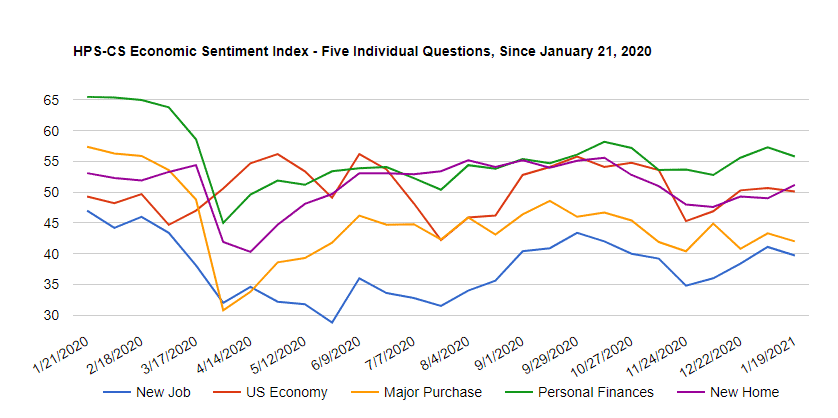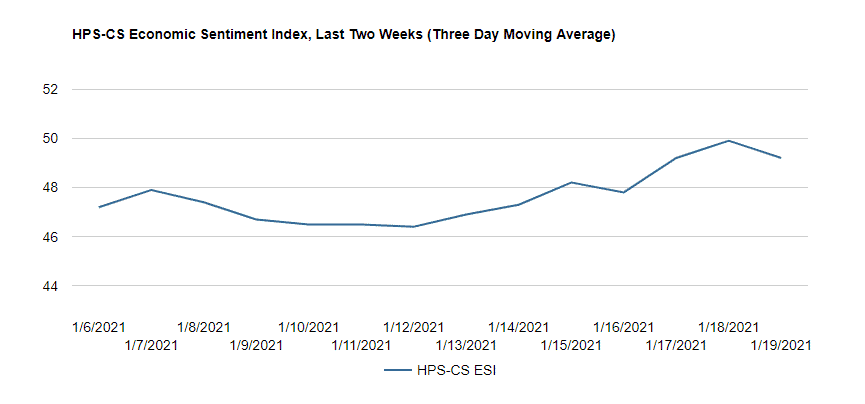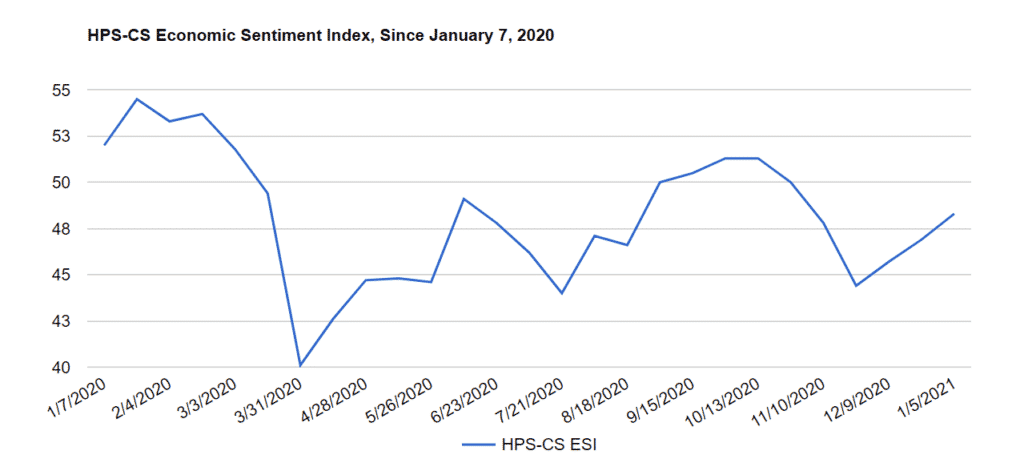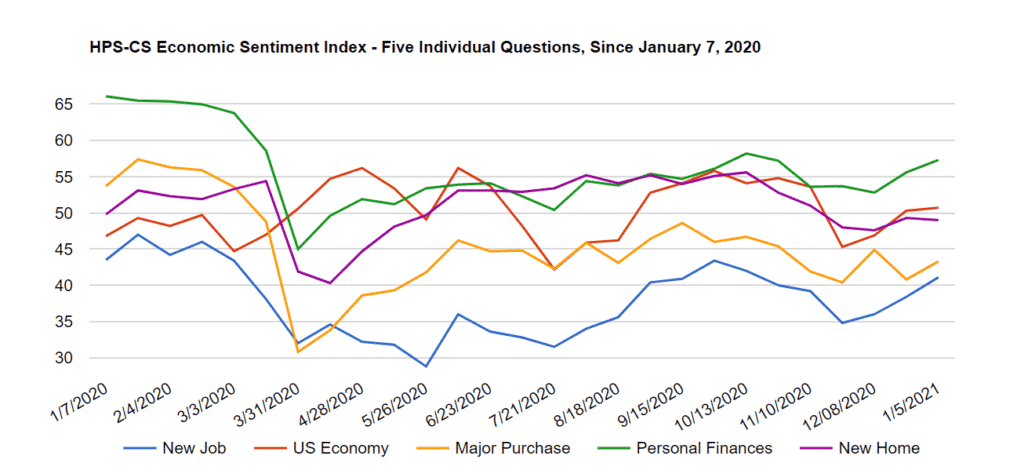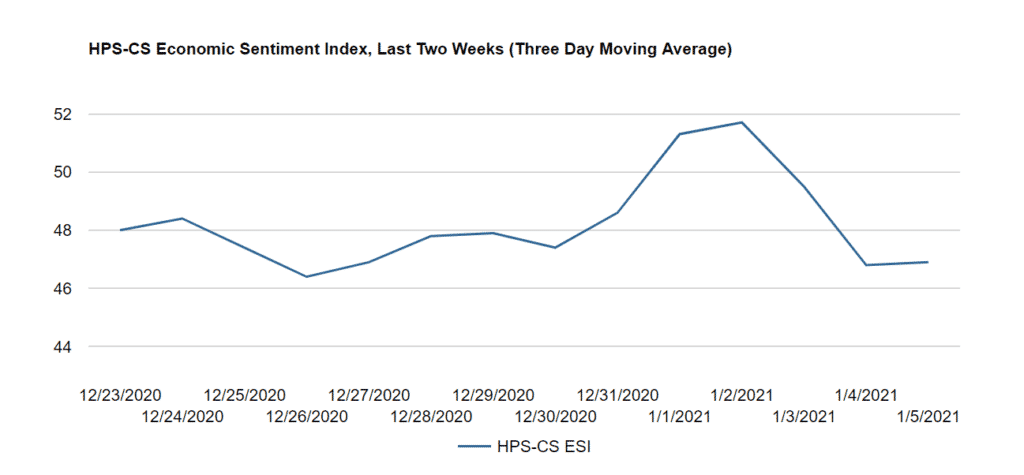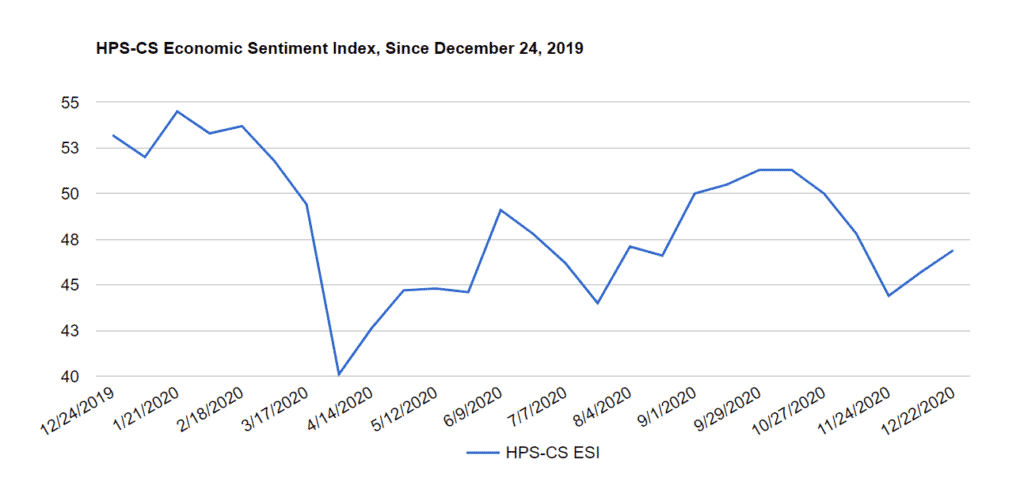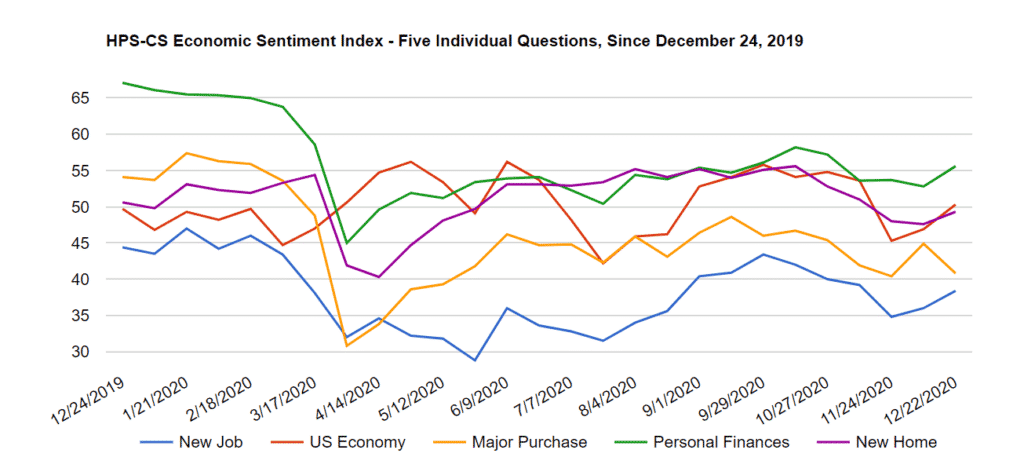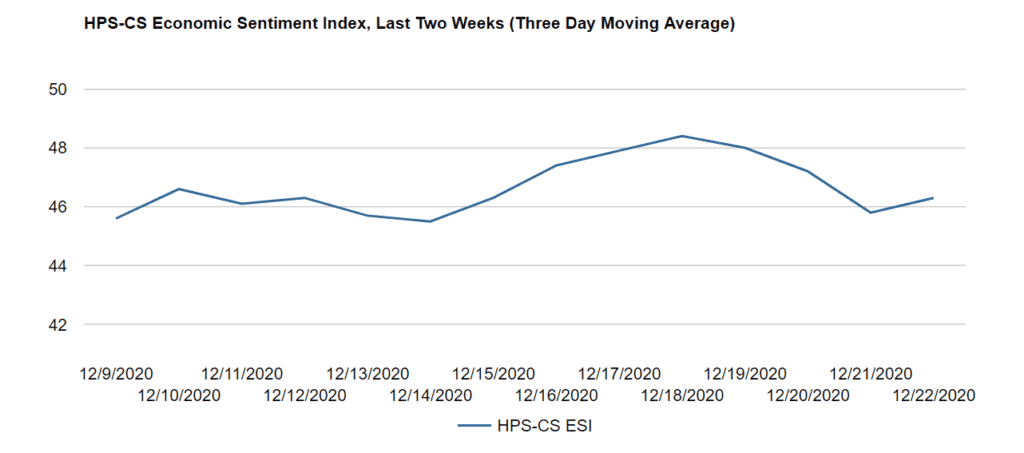Economic sentiment surged over the past two weeks, rising 2.2 points to a reading of 49.6, according to the HPS-CivicScience Economic Sentiment Index (ESI). With Congress seemingly on the cusp of sending a COVID-relief bill to President Biden’s desk and COVID cases decreasing across the country, economic sentiment rose for the first time in two months. The surge was driven by a significant boost in confidence towards the overall U.S. economy.
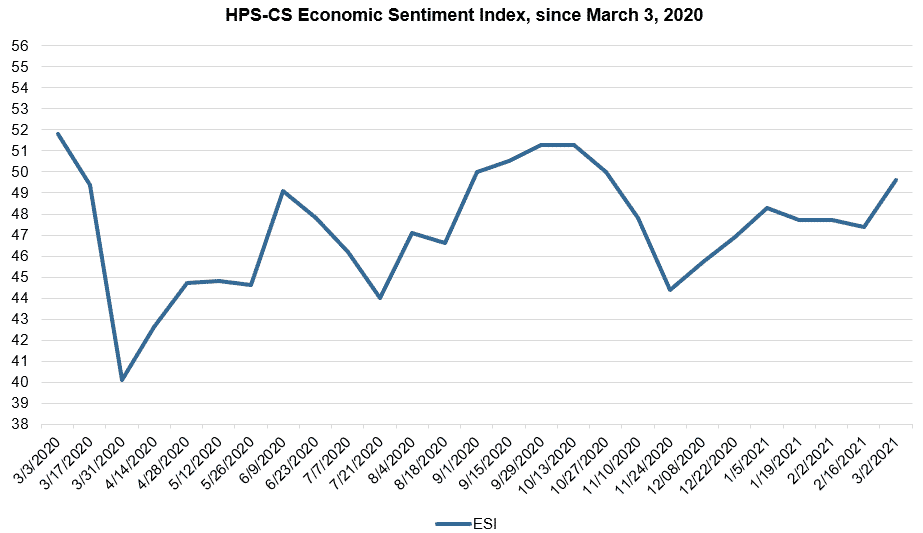
All five of the ESI’s indicators rose over the past two weeks amidst better than expected economic data, House passage of the COVID-relief package, continued rollout of COVID vaccines, and new economic forecasts signaling strong U.S. economic growth in in the months ahead. Confidence in the U.S. economy grew the most, rising by 5.6 points to 55.4, its largest jump since September.
The four other indicators rose at a more modest pace:
Confidence in the job market increased 1.9 points to 43.1, its highest level since September.
The consumer indicators of confidence in personal finances and making a major purchase rose 1.9 and 1.8 points, respectively.
Confidence in the housing market increased slightly, moving up 0.1 point to 49.4.
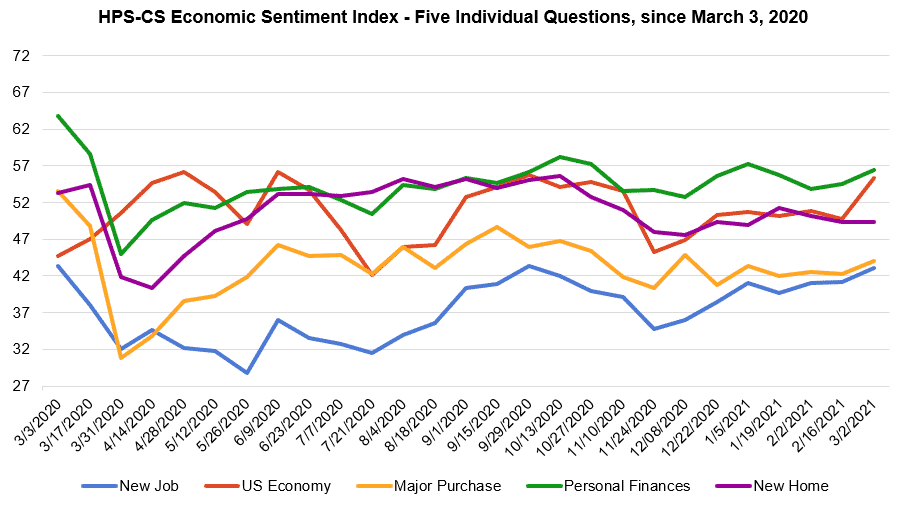
The moving average began at its low of 47.6 on February 17 and peaked on February 21 at 50.7. It then fluctuated within a 1.0 band for the remainder of the reading, closing at 49.1 on March 2.
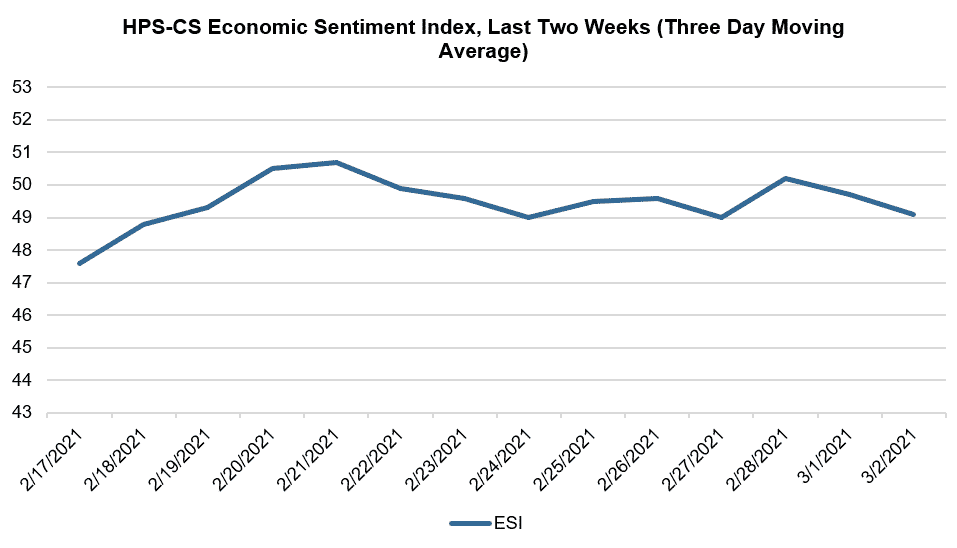
About the Index
The HPS-CivicScience Economic Sentiment Index (“ESI”) is a “living” index that measures U.S. adults’ expectations for the economy going forward, as well as their feelings about current conditions for major purchases. The primary goal of the Index is to accurately measure movements in overall national economic sentiment and to provide a more sophisticated alternative to existing economic sentiment indices. Unlike other prominent indices that release consumer sentiment estimates infrequently, the HPS-CivicScience Index is updated in real time as responses are collected continuously every hour, every day. Large-scale cross-tabulation of survey responses and consumer attributes enable more granular analyses than are currently possible through prevailing measures. For a more detailed overview of the Index and the underlying methodology, please request a white paper.
About CivicScience
CivicScience, Inc. provides the leading intelligent polling and real-time consumer insights platform, the InsightStore™. Its proprietary platform powers the world’s opinions and quickly gets that data to the decision makers who care. Every day, CivicScience polls ask millions of people questions related to thousands of topics, while its powerful data science and big data technology analyzes current consumer opinions, discovers trends as they start, and accurately predicts future behaviors and market outcomes. CivicScience polls run on hundreds of premier websites, in addition to its own public polling site at www.civicscience.com. CivicScience’s InsightStore™ is used by leading enterprises in marketing research, advertising, media, financial services, and political polling. For more information, visit CivicScience by clicking here and follow them on Twitter – @CivicScience.


